- Home
- Rick Mofina
The Burning Edge Page 4
The Burning Edge Read online
Page 4
“Take it easy, Lisa. We located the bag with the cell phones,” Morrow said. “The suspects tossed it in a ditch near the lot and set it on fire. We believe they took them to buy time. What remains of the phones is evidence.”
“But nobody will let me call my kids. Are my kids okay?”
“They’re okay. We’ve taken care of that.”
“How?”
Morrow consulted his notes.
“You told us you left them with your friend, Rita Camino.”
“Rita, yes.”
“We’ve requested the NYPD send an unmarked plainclothes unit to get Rita, Ethan and Taylor. We’re making arrangements for you to see them. For now, it’s vital that we keep things confidential. Okay?”
Lisa’s fingertips caressed two small photos on the desk. Her children, Morrow figured, pegging the pictures as the wallet-size format from the type portrait studios offer at malls.
“How long before I can see them?”
“We’re working on that.” Morrow nodded to two other agents in the office who’d finished setting up a small video camera, then said, “I’m sorry for what you’ve been through and I know you’ve already given us your account, but as the case agent, I need you to talk to me and we need to record it. Okay?”
She continued looking at her children and Morrow asked if the paramedics had given her a sedative.
She shook her head; so did the Ramapo officer.
Good, Morrow thought. A sedated witness could be a challenge.
“I know this is difficult,” Morrow said, “but I need you to give me every detail of everything that happened while it’s fresh. Can you do that?”
Lisa’s breathing quickened. Her gaze lifted to the big windows and the center’s parking lot as if the murders were replayed out there.
“It was horrible.”
For nearly half an hour, Lisa took Morrow through it all, telling him all she could remember from the lobby, then inside. One of the gunmen sounded American, another sounded foreign, European, maybe. Their movements suggested those of men in their late twenties, early thirties, though Lisa couldn’t say for sure.
They wore motorcycle helmets with dark shields that hid their faces. They had full-body suits that motorcycle racers wear. They were wearing gloves. As for weapons, all Lisa saw were handguns.
“Do you recall seeing any distinguishing marks?”
Recognition rose in her mind then vanished.
Distinguishing marks?
Awareness rose again before dissipating. Lisa couldn’t remember. She shook her head.
“Are you sure?” Morrow asked.
Lisa blinked hard.
But something was there. Why can’t I remember?
Because it’s my fault.
Morrow pressed for other details. How were Lisa and the agent positioned? Show us the angle, show us the distance. Show us where on this floor plan. Where were the suspects? What were they saying?
“I know this is awful,” Morrow said, “but it might help if you reenacted where the killer positioned the gun before he pulled the trigger.
Before he pulled the trigger.
If she hadn’t dropped the gun, the agent might still be alive. Her guilt mounting, Lisa recounted how the agent had identified himself, directed her to get his gun, how she’d dropped it, how the gunman rushed to them.
She then lowered her head flat on the desk, atop the photos of her children, and positioned her fingers like a gun. With her trembling forefinger as the barrel, she pressed it to the side of her head.
“He never pleaded for his life like I did. He tried to help us.”
Lisa sobbed.
The Ramapo officer comforted her.
Morrow gave it a moment and looked to the window; that’s when he thought he saw someone at the edge of the lot. The press? As a precaution, he nodded for an agent to close the blinds.
Morrow returned his attention to Lisa, who was calmer. He had finished interviewing her for now and closed his clipboard.
“Thank you, Lisa.” Morrow gave her his card. “Call me at any time if you remember anything more at all. I don’t want to put you through this too many more times, but we’ll talk again soon. Matt Bosh is here and he’s going to help you now.”
A second man, who had quietly entered the office, took Morrow’s cue.
“Lisa, Matt Bosh. I’m with the FBI’s Office for Victim Assistance. We’re here to help you. First thing we want to do is get you into town to be with Ethan and Taylor, to make sure you feel safe and comfortable.”
Bosh had white hair and a kind face.
Lisa nodded her appreciation.
She found a measure of composure and searched her bag for more tissue, suddenly remembering the magazine and comic book she’d bought for Ethan and Taylor; how items had spilled from her bag during the heist.
How they were lost.
Like so many things in my life.
Overwhelmed by a terrible wave of sadness, she called out to Morrow before he left the room. He stopped and turned, hopeful she’d recalled an important detail.
“Did you know him? The agent?”
“No.”
“Did you know anything about him?”
“He was married. His wife is pregnant with their first child.”
“Can you tell me his name?”
“Gregory. Gregory Scott Dutton.”
Lisa turned back to the desk, stared at the pictures of her own children and tenderly collected them. Consumed with guilt because she was alive, she broke into tears again.
Watching her, Morrow grappled with his rising fury.
He didn’t know if it was for the cold-blooded executions of these four people, or for his own death sentence. It didn’t matter, he reasoned, heading for the door.
He took up his communion with the dead as if it were a shield and whatever anger he had, he kept caged. Glancing at the ID photos of the three guards and the young agent, Morrow made his way back to the killing zone, accepting that he was at war.
7
Ramapo, Metropolitan New York City
Time to roll the dice.
Gannon was at the tape, too far away to identify the woman in the office who was demonstrating a shooting to investigators.
Morrow, the FBI case agent, had to be among the small group gathered around the desk. Gannon needed to talk to him, but didn’t know how much longer he’d be alone here. In the office, he saw someone looking in his direction. Then the blinds closed.
Damn.
He had to do something. A long moment passed.
Gannon whistled through his teeth at a detective who was standing in the parking lot near the office, reading notes. The man approached.
“What’s the problem?”
“I believe Special Agent Morrow is inside. It’s important I speak with him, briefly.” Gannon gave him his card.
“Nobody’s giving any interviews.”
“Our stories go to every newsroom in the country and around the world. We can get information out fast. If you want to catch the bad guys, it might help you to talk to us.”
Considering Gannon’s point, the detective reassessed Gannon’s card, looked back at the office, told him to wait then walked to the building. Gannon saw him at the door, talking to two men also wearing the standard FBI uniform of conservative jackets, white shirts and ties. One of them looked at Gannon, then his watch.
Then the two new guys started toward him.
This was his shot.
“What is it?” The first fed asked.
“You’re Agent Morrow?”
“Right, who are you?”
“Jack Gannon, WPA. I understand you’re the case agent?”
“Yeah, what’s so important?”
“Can you confirm for the WPA that one of the four homicide victims is an FBI agent? And that it’s believed he was going for his weapon when he was killed?”
Morrow’s icy expression revealed nothing.
Gannon expected his questions to sting because they betrayed a leak. But that was not his concern. Leaks, tips, informants and anonymous sources were oxygen for reporters, and for cops like Morrow. The agent was about six feet, maybe taller, with a medium build. His chiseled, impassive face gave off the vibe of a man not to be messed with as he eyed Gannon.
But Gannon was no rookie, having experienced ordeals like a horrific interrogation by secret police in Morocco and being taken hostage by drug gangs in the slums of Rio de Janeiro. He was raised in a blue-collar section of Buffalo, New York. His old man was a machine operator in a rope factory and had a handshake that could crush bones.
Gannon could stand his ground with anybody.
“Is any part of my information wrong, Agent Morrow?”
“No comment.”
“Do you have any key witnesses?”
“No comment.”
“But you’re not denying WPA’s information?”
“I don’t have time for games with you.”
The second agent stepped closer to Gannon. “There will be a press briefing at the flags. We advise you to go there now.”
A tense moment passed between them before Morrow and the agent walked off.
So did Gannon, his determination hardening with each step.
Twenty minutes later he was at the flagpoles.
Things had changed here since he’d ventured off alone to prospect for information. More than one hundred members of the Greater New York City news media had claimed a patch of space under the flags.
Any of these people could have the jump on me, Gannon thought, tapping his notebook against his leg while observing the rituals of a news conference.
The camera operator called for batteries, cables and switches from news and satellite trucks. Information concerning birds, dishes, coordinates and feeds was exchanged over harried calls that were patched to directors, booths and networks. TV reporters primped and preened hair and teeth, checked earpieces and handheld mikes.
Gannon saw Carrie Carter, with WRCX Radio 5 News, talking with a reporter from the New York Daily News. Then he saw Dixon finish a phone call and adjust his camera.
“Jack. Sorry, I didn’t catch up to you. The desk wanted me to stay here. You find anything?”
“Only possibilities. What about you?”
“They moved my stuff. Great pickup. The desk says we beat AP and Reuters with some of the big ones already. FOX, CNN, USA Today, the Washington Post, L.A. Times, Times of London, Le Monde in Paris, Bild in Germany and the Sydney Morning Herald have posted them already.”
A sheet of paper appeared in front of Gannon, held by a cop distributing a short summary of facts on the crime. Gannon took it, read it over. Nothing here he didn’t know. His phone rang.
“It’s Lisker. Update me.”
“They’re about to start a news conference.”
“What do you have?”
Glancing around, he lowered his voice to protect his information. “I got an account of what happened from a source close to the investigation, but it’s going to take more work to flesh it out.”
“What about suspects?”
“Nothing so far. Nothing they’re talking about.”
“They have any leads? What’re they saying?”
“Not much.”
“Well, what else you got?”
“That’s it for now.”
“That’s it? We’re going to need more to stay out front on this. We’ve sent people up to report on the manhunt.”
“I have to go.”
Several sober-faced men in suits and uniforms emerged at the microphones. The one who identified himself as FBI Special Agent Tim Weller then made introductions of the police people flanking him from Rockland County, Ramapo P.D. and the New York State Police.
In the seconds Weller took to prepare, it struck Gannon, as it often did covering major crimes, how this part of the process was a macabre juxtaposition. Here they were about to joust over information on a multiple homicide, while not far off, the bodies of the victims still lay under tarps in pools of blood.
And somewhere out there notifications would soon be made; somewhere out there wives, mothers, fathers, sons, daughters, sisters, brothers would be told the worst thing a human being could ever hear. Gannon knew the devastation, knew how the ground under your feet vanishes, how your world changes forever.
A memory shot through him.
The state trooper standing at his apartment door in Buffalo, holding his hat in his hand. He has shining brown eyes. A mix of cologne and unease as he clears his throat and confirms. “Jack Gannon?” Rotating the hat in his hand, saying, “I’m so sorry to have to tell you that your mother and father have been in an accident. A very bad accident. I’m so sorry.”
Gannon shifted his concentration to the podium where Weller looked into the cameras and unfolded a sheet of paper.
“Let’s get started.” He read directly from the handout, offering little more than a bare-bones summary of the case: Police were searching for four armed-and-dangerous suspects wanted in connection with four homicides during the robbery of an American Centurion armored car while the crew was replenishing ATMs at Freedom Freeway Service Center at Ramapo. Three of the victims were armored car guards, the fourth a resident of Connecticut. At this time, their names are being withheld until tomorrow after their next of kin have been notified.
“We’ll take a few questions now,” Weller said, igniting a deluge.
“Is this in any way connected to terrorists?”
“Nothing’s been ruled out at this time.”
“How much cash was stolen?”
“That’s undetermined at this time.”
“Was anyone taken hostage when they fled?”
“We don’t believe so. Nothing indicates anyone taken against their will.”
“Can you estimate how many shots were fired?”
“We don’t have that information at this time.”
“Did the guards fire back?”
“It’s unclear at this point.”
“We heard the suspects fled on motorcycles, is that true?”
“That’s our understanding. We hope to have more information later.”
“There’s some indication the power failed prior to the heist. Is this an inside job? Is anyone else involved?”
“All part of the investigation.”
“Were security cameras working?”
“That’s under investigation.”
“We heard that maybe people outside took some pictures or video with cell phones?”
“We’re looking into that.”
“Have your searches on the thruway and in town yielded any leads?”
“Not yet.”
“Can you tell us about the fourth victim?”
“As we’ve said, we’ll have more information tomorrow.”
For nearly half an hour the reporters were unrelenting with their questions. Many were repeated, frustration mounting until Weller concluded matters. “The investigation is ongoing. More information will be released at a later date.”
Gannon sighed internally.
It looked as if his angle about the fourth victim being an FBI agent who’d died going for his gun remained his exclusive. Using his BlackBerry, Gannon typed an immediate update to the news desk at WPA headquarters with a note stating that he’d write a fuller feature once he got back. After he’d pressed the send button, he felt a tap on his shoulder.
“So this is it?” Katrina Kisko glowered at him. “This is what you couldn’t tell me?”
“I didn’t want to complicate things.”
“I just don’t get it, Jack. I am not your freakin’ enemy. Besides, when a story like this breaks, you seriously think the New York Signal isn’t going to know about it?” She shook her head. “You’re still pissed at me, that’s what this is all about.”
“Well, you kind of just flushed me away, but that’s fine.”
“I’m sorry. I suck at that sort of thing, okay?”
“Sure.”
“Can’t we be friends? Maybe work together on this? I’ll help you, you help me?”
Gannon smiled.
“I don’t think so. You’re forgetting, you’re my competition, Katrina.”
The warmth drained from her face.
“Fine with me, if that’s the way you want to play it. You want to go up against me, the New York Signal and our two million online followers? Well, bring it on.”
Katrina walked away.
That’s the way I want to play it, Gannon thought.
As he and Dixon headed back to his SUV, he stopped at the tape, his eyes adjusting to the distance, and watched the crime scene technicians working around the victims.
He gave it a moment, out of respect for the lives lost.
8
New York City
Killers At Large After Armored Car Heist…
The headlines on the I-87 truck stop murders blazed along the news zipper that flowed around the old New York Times Building.
Updates also streaked across the news ribbons on neighboring buildings, intensifying the jumbotronic neon glory that was Times Square. But the full story would be forged about a dozen blocks northwest in the headquarters of the World Press Alliance.
After a hard drive from Ramapo into Midtown, the brakes squeaked on Angelo Dixon’s SUV when he stopped in front of the WPA Building. Gannon got out, hustled through the lobby, swiped his ID badge at the security turnstile and stepped into the elevator.
The afternoon was fading and time was hammering against him.
While the elevator floor numbers flashed, he concentrated on what he had, what he had to confirm and how he would structure his story.
The doors opened on the sixteenth floor.
Gannon passed through news reception with a familiar rise of pride as he swept by the wall showcasing some of the most stunning images taken by WPA photographers over the last century. Many were Pulitzer and international prize winners.
The news operation took up much of the floor. Executive offices lined the north and south walls. The floor-to-ceiling glass walls on the east offered the Empire State Building, Madison Square Garden and Penn Station. Looking west, Gannon saw the Hudson and New Jersey.

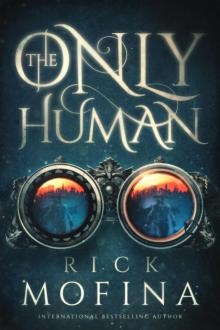 The Only Human
The Only Human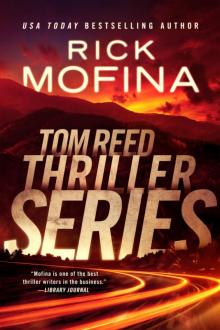 Tom Reed Thriller Series
Tom Reed Thriller Series![[Tom Reed and Walt Sydowski 04.0] No Way Back Read online](http://i1.bookreadfree.com/05/tom_reed_and_walt_sydowski_04_0_no_way_back_preview.jpg) [Tom Reed and Walt Sydowski 04.0] No Way Back
[Tom Reed and Walt Sydowski 04.0] No Way Back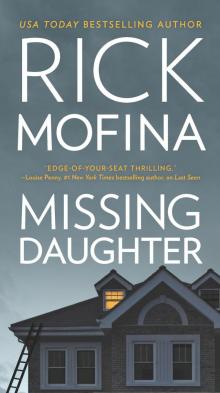 Missing Daughter
Missing Daughter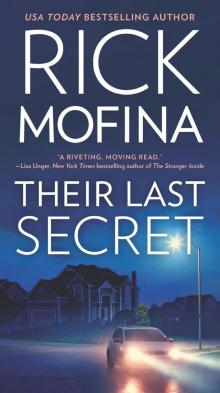 Their Last Secret
Their Last Secret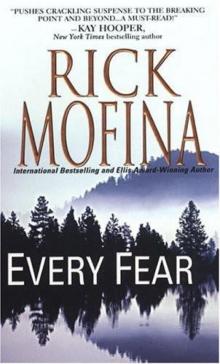 Jason Wade - 02 - Every Fear
Jason Wade - 02 - Every Fear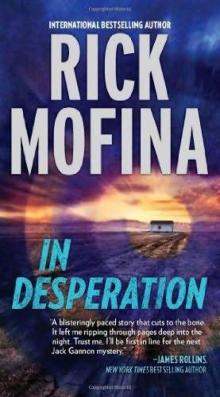 In Desperation
In Desperation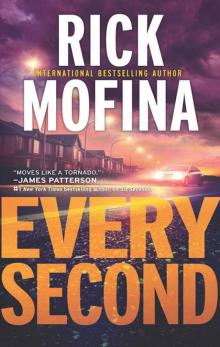 Every Second
Every Second Full Tilt
Full Tilt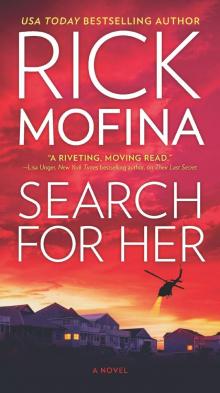 Search for Her
Search for Her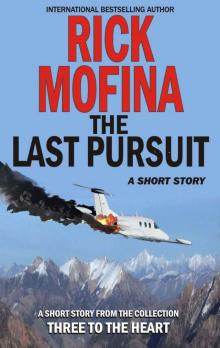 The Last Pursuit
The Last Pursuit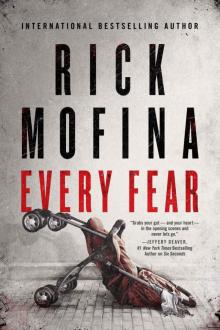 Every Fear
Every Fear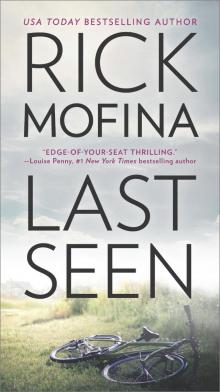 Last Seen
Last Seen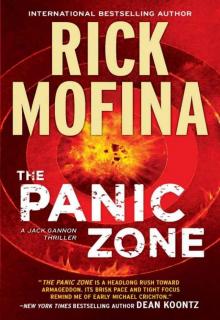 The Panic Zone
The Panic Zone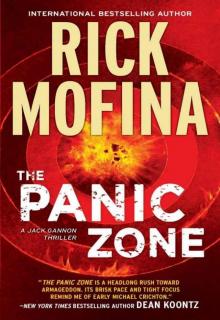 The Panic Zone jg-2
The Panic Zone jg-2 Free Fall
Free Fall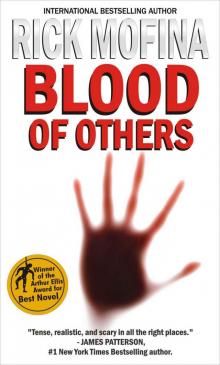 Blood of Others
Blood of Others![[Jason Wade 02.0] Every Fear Read online](http://i1.bookreadfree.com/i1/03/31/jason_wade_02_0_every_fear_preview.jpg) [Jason Wade 02.0] Every Fear
[Jason Wade 02.0] Every Fear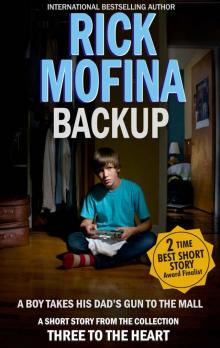 Backup
Backup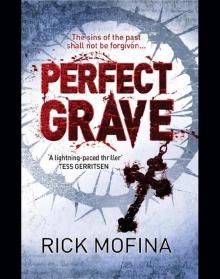 Perfect Grave
Perfect Grave Into the Dark
Into the Dark Whirlwind
Whirlwind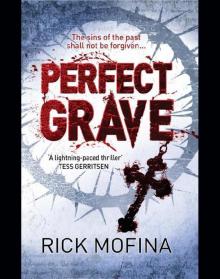 Perfect Grave jw-3
Perfect Grave jw-3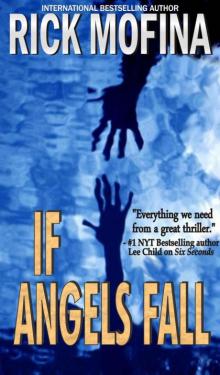 If Angels Fall (tom reed and walt sydowski)
If Angels Fall (tom reed and walt sydowski)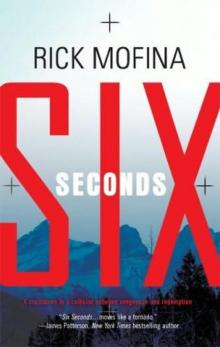 Six Seconds
Six Seconds If Angels Fall
If Angels Fall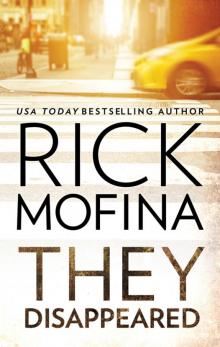 They Disappeared
They Disappeared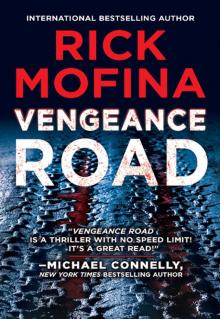 Vengeance Road
Vengeance Road Before Sunrise
Before Sunrise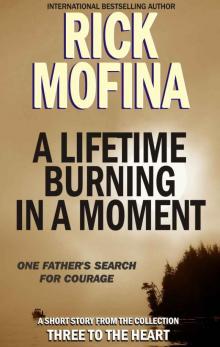 A Lifetime Burning in a Moment
A Lifetime Burning in a Moment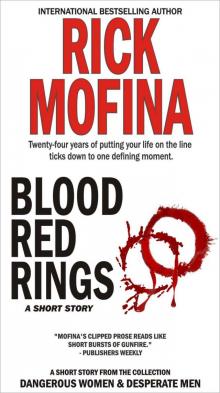 Blood Red Rings (Dangerous Women & Desperate Men)
Blood Red Rings (Dangerous Women & Desperate Men)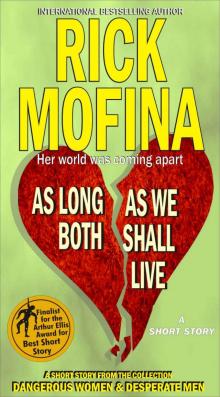 As Long As We Both Shall Live (Dangerous Women & Desperate Men)
As Long As We Both Shall Live (Dangerous Women & Desperate Men)![[Tom Reed and Walt Sydowski 01.0] If Angels Fall Read online](http://i1.bookreadfree.com/i2/04/12/tom_reed_and_walt_sydowski_01_0_if_angels_fall_preview.jpg) [Tom Reed and Walt Sydowski 01.0] If Angels Fall
[Tom Reed and Walt Sydowski 01.0] If Angels Fall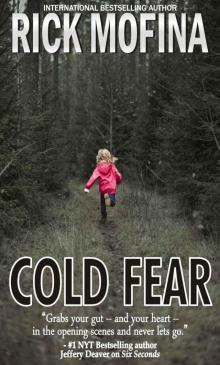 Cold Fear
Cold Fear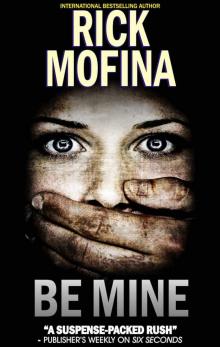 Be Mine
Be Mine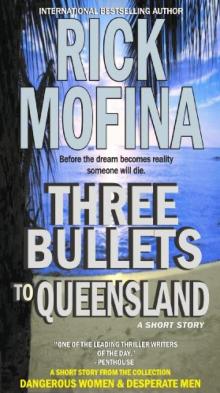 Three Bullets To Queensland
Three Bullets To Queensland